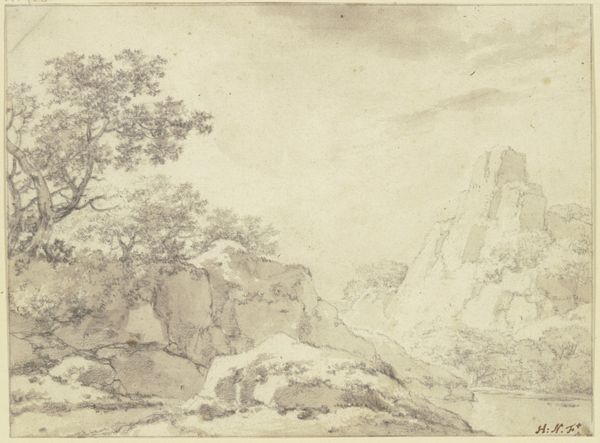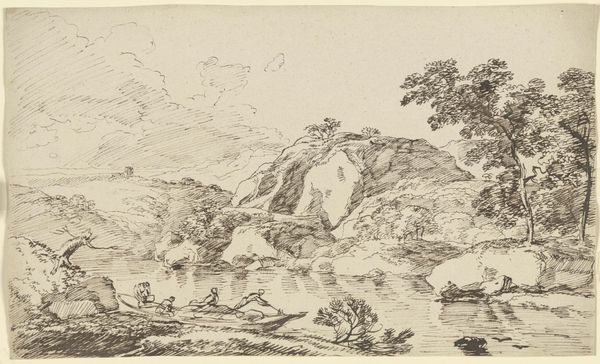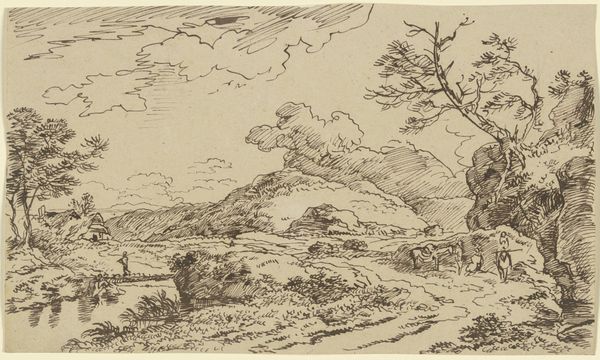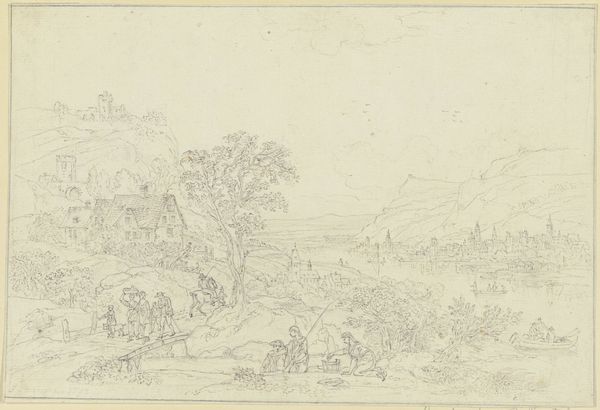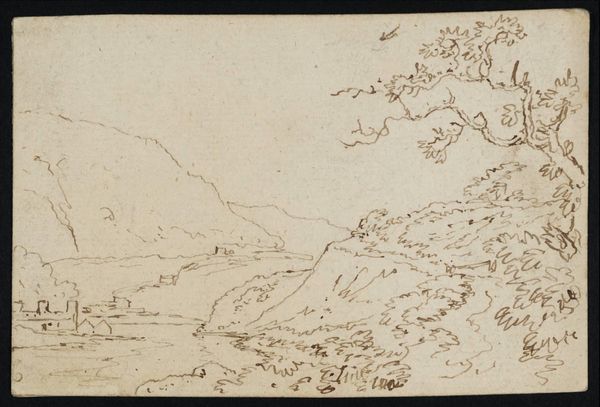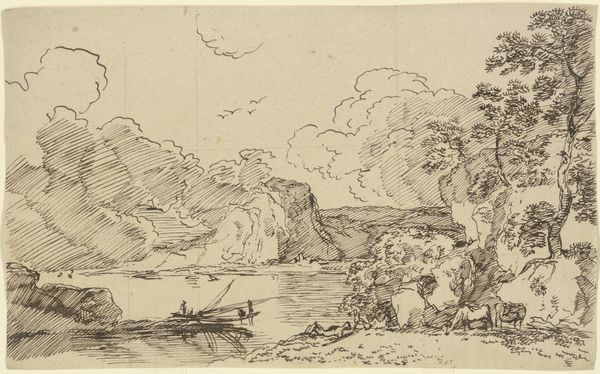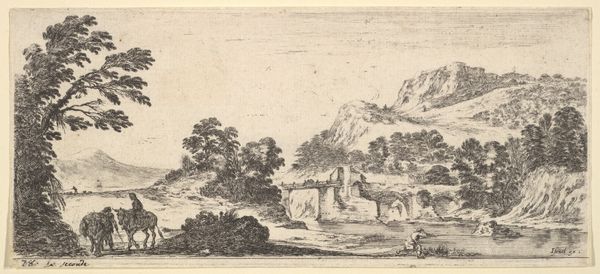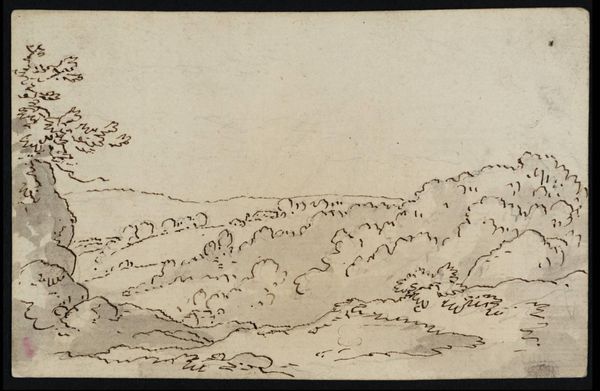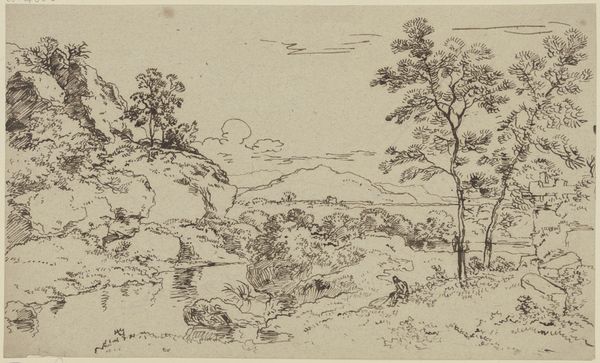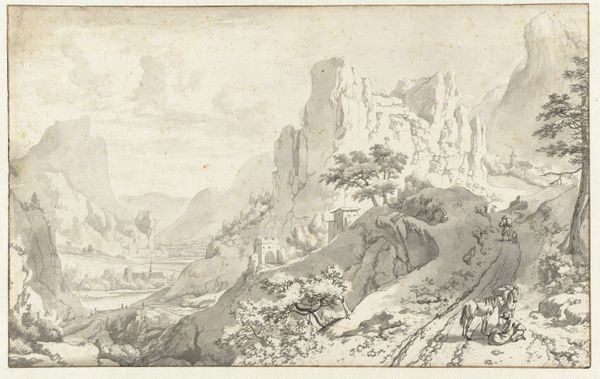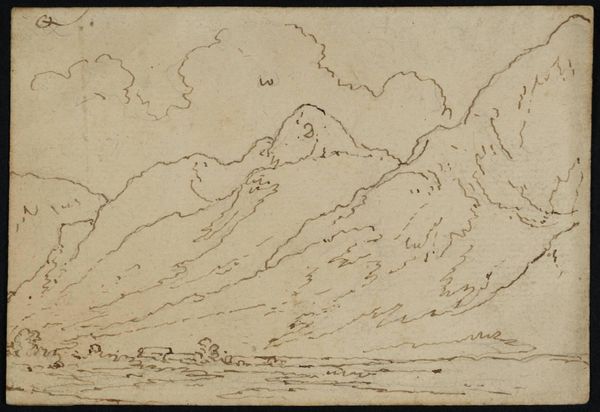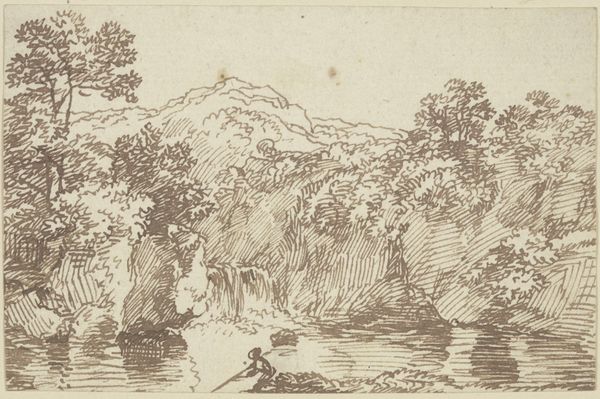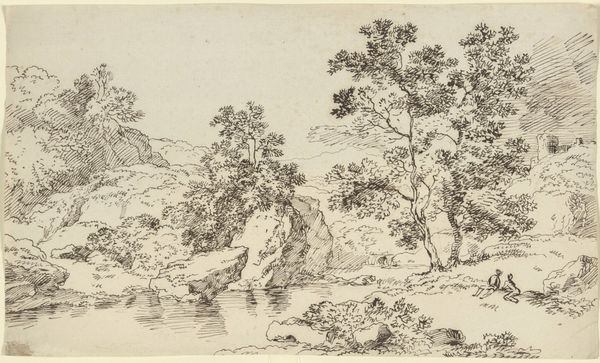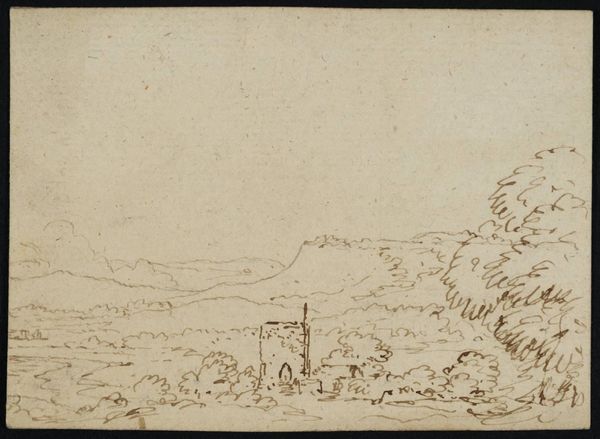
Landschaft, links ein Berg und Sträucher, rechts ein Tal im Hintergrund
0:00
0:00
drawing, ink, indian-ink, pen
#
drawing
#
netherlandish
#
pen sketch
#
pencil sketch
#
landscape
#
ink
#
sketch
#
indian-ink
#
15_18th-century
#
pen work
#
pen
#
pencil work
Copyright: Public Domain
Curator: Right, so this is “Landscape, a mountain to the left, bushes, a valley in the background to the right," an ink drawing by Vincent van der Vinne. It lives here at the Städel Museum. It has a very '18th century Netherlands' vibe, doesn't it? Editor: It feels delicate. Sparse, even. It’s almost as if the landscape is holding its breath, waiting for the rest of the picture to materialize. It really plays with the light...or lack thereof. Curator: Exactly! And Van der Vinne's linework here, with the ink, gives such an ethereal feel. You can sense the airiness of the space. Editor: Absolutely, but how much of that "airiness" speaks to the artistic conventions, the societal constraints imposed on artists at the time? Were artists even able to represent nature in any way they desired? Or were they guided and steered by patrons with a financial and ideological investment? Curator: That's a compelling way to think about it. Perhaps he was bound by the market's taste for ordered landscapes, which is so much what wealthy patrons liked to display... However, that steep craggy cliff to the left, and that sense of freedom in the handling of the brushstrokes...that seems a bit more like something untamed. It feels like Van der Vinne really knew how to work around limitations to introduce some genuine personal touches into his pictures. What do you think? Editor: Well, I do find a curious ambivalence in the composition; it has its roots, like you pointed out, in older modes of representation that favoured harmony, yet at the same time hints at something other, a disquiet beneath the calm surface, where perhaps, ideas and artistic possibilities might sprout in later generations of Dutch artists. Curator: Mmh. Maybe that cliff represents that crack where the wild ideas seeped in... Maybe it's the portal. Editor: In a sense. So this is not merely an appealing vista. It is the intersection between established tradition and change; and by appreciating this push and pull, the drawing then can come alive, even for the visitor. Curator: I love that! It feels like this drawing can grow, constantly change...like nature itself!
Comments
No comments
Be the first to comment and join the conversation on the ultimate creative platform.
